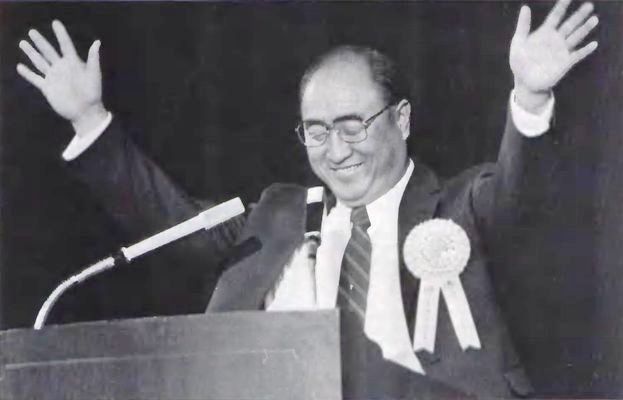![]()
The Words of the Rubenstein Family
|
|
The Words of the Rubenstein Family |

Greetings and welcome to our most honored guests from all over the world! It is my privilege to introduce the founder of ICUS, the Reverend Sun Myung Moon. to the participants and observers of the tenth ICUS, the first to be held in his native land. I am by vocation a theologian and an historian of religion. As you will understand, my vocation gives me a very special reason for a keen interest in the founder and his church. I hope, therefore, that you will permit me to share with you some of my thoughts concerning this man.
As students of society have long understood, it is impossible for human beings to transform their tools without changing the way they educate their young, the way they live and work together, and the ways in which they find meaning in their existence. Moreover, in our own age, there has been only one truly permanent revolution: I do not refer to the political revolutions of either the right or the left but the worldwide revolution of science and technology, with all of the awesome social and cultural transformations that revolution has brought into being. This very meeting itself has been made possible by the revolution. And, it is no accident that this meeting is sponsored by a religious institution, the Unification Church, that has distinguished itself by its concern for the human consequences of the technological revolution, for humanity's great repositories of meaning through times of both stability and discontinuity have historically been religious traditions.
Moreover, the Unification Church is a new religion, something that can both surprise and disturb most Western-trained scholars and scientists. There is in the West a certain duality of consciousness that can give honor to religiously-inspired figures only as long as they are safely separated from us by long stretches of time. When, however, we are confronted with persons of intense and authentic religious inspiration in the present, we tend to use psychological and even ethical categories to reduce the significance of or negate their inspiration altogether. We have a rage for order and predictability, at least in matters religious. We are fearful when confronted with anyone whose spirit would disturb the order we crave. Nevertheless, our rage for order is destined to prove illusory if we do not take seriously and heed the inspired religious leaders of our time, for, as we have noted, we do not live any longer in an ordered and a secure world, but in a time of permanent discontinuity and revolution.
Furthermore, it is interesting to note that the two Asian countries that have been most affected by the technological revolution, Japan and Korea, have witnessed an extraordinary proliferation of new religions in response to the crisis of modernization and technology. Fortunately, the spirit of radical secularization has not corroded the wellsprings of religious inspiration in Asia as it has in the West.
It is of crucial importance that we understand our founder, the Reverend Sun Myung Moon, as coming from a land in which the wellsprings of religious inspiration have not dried up. Yet, religious inspiration by itself is insufficient. What our age requires are men and women of genuine religious vision and even daring, who are capable of inspiring and energizing others, and who, at the same time, are capable of confronting constructively the long-range, worldwide significance of our permanent revolution.
It is in this perspective that I see the Reverend Moon as a religious leader of preeminent significance. I must confess that many in my generation who were, for example, students of the last great Western theologians, Karl Barth and Paul Johannes Tillich, aspired to be the kind of religious leaders that technological civilization required, but, as scholars trained in the methods of Western rationalism, the best that we could accomplish was to become interpreters of other's inspiration.
We could never become what the Reverend Moon is, a man of genuine inspiration capable of infusing others with his inspiration. With his unique gifts, he has united the private and the public dimensions of religious life and concern, as he has daringly and imaginatively utilized the very power of technology to serve as a force for healing the ruptures in the individual and the body public created by that revolution.
Instead of retreating within the history and tradition of his nation in the face of the technological revolution, he has sought to utilize the histories, traditions and experiences of all people both Eastern and Western, to foster a new vision of the spiritual unity of mankind. This too is in keeping with the spirit of our times, for technology is destined eventually to unify mankind one way or another: either by the total annihilation of the opposing other or by the achievement of a worldwide unity based upon a new foundation of shared values and inspiration. That foundation can only he religious, and it is to that end that our founder has given himself.
As we gather together as guests of our founder in his native land to hear his message, it is my very great honor to present him to you, the most honored and revered teacher, the Reverend Sun Myung Moon.